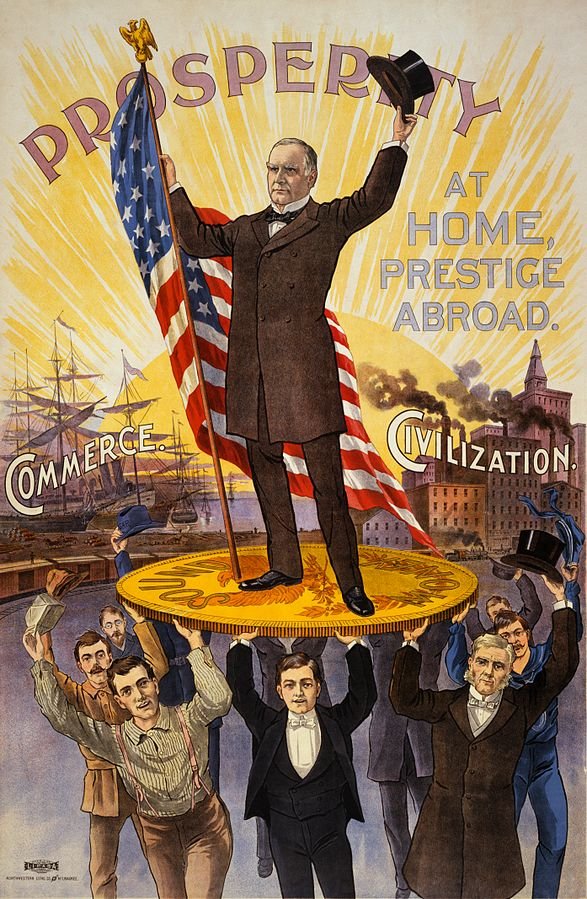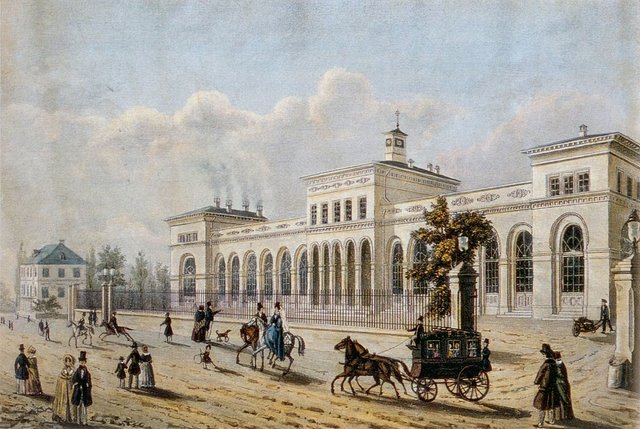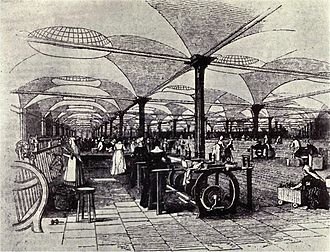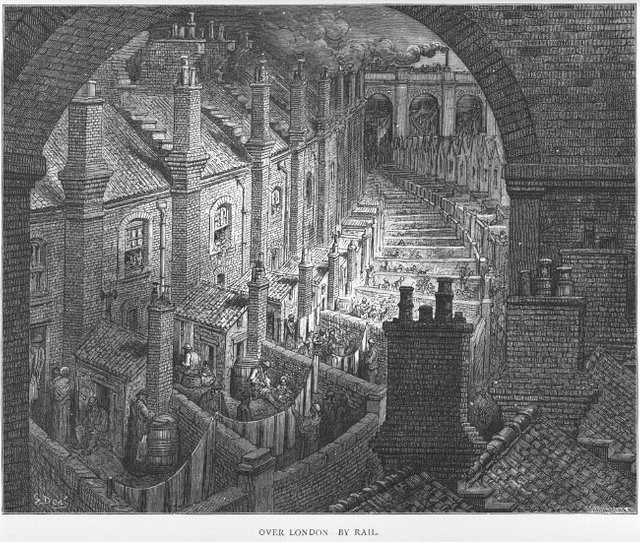Rise of Capitalism |BeHistoryBuff|
CAPITALISM

Free enterprise is an unconventional type of class society. Like past class social orders it includes a minority segment of society snatching the surplus made by the work of whatever is left of society. However, there are vital contrasts. Past decision classes essentially grabbed the overflow, while entrepreneurs get it by purchasing individuals' ability to work (what Marx called 'work control'). What's more, past decision classes utilized all the surplus all alone extravagance utilization or on battling each other. The utilization of any of the surplus to enhance the method for creation was fitful. Monetary development was generally moderate, frequently non-existent, here and there negative for quite a long time at once. Entrepreneur administering classes, in any case, are driven by monetary rivalry inside and between themselves to furrow a sizeable bit of the surplus once again into development of the method for creation. There is not simply financial development, but rather enthusiastic gathering. It is this which has empowered entrepreneur deciding classes that more than two centuries back controlled just periphery territories of north western Europe to overwhelm the globe today.
The question in the matter of why this new type of class administer emerged in specific parts of western Europe and not somewhere else has since quite a while ago confused students of history, including Marxist antiquarians. It was one of the issues the middle class humanist Max Weber attempted to manage in his broad, and frequently convoluted, compositions. It goes through the colossal three-volume consider Capitalism and Civilisation by the French monetary history specialist Fernand Braudel.It has likewise been at the focal point of two major level headed discussions among Western Marxists- - that among those near the Communist gatherings in the 1940s and mid 1950s, distributed in the volume The Transition from Feudalism to Capitalism, and that among 'New Left' students of history in the 1970s, distributed in the volume The Brenner Debate.
The issues brought up in the level headed discussion don't appear to have much useful significance for communists toward the start of the 21st century, now that private enterprise has unmistakably vanquished the entire globe, leaving essentially no pre-entrepreneur states in presence. This is in sharp appear differently in relation to the circumstance for prior eras of communists, brought up in a world in which pre-entrepreneur administering classes, or if nothing else the leftovers of, regardless them applied an unequivocal impact over state structures, with the goal that how to break their grasp could appear to be exceedingly imperative for those in what we now call the 'Third World'.
By the by, the issues stay of ideological significance. The contention is still across the board that free enterprise emerged in western Europe as an aftereffect of the uncommon estimations of a Hellenic or 'Judaeo-Christian' social legacy. It is utilized by theological rationalists for free enterprise like David Landes, opening the way to the conclusions that 'Western qualities' must be shielded no matter what from the "qualities" of 'Islamic', 'African', 'indigenous American' or different societies, which are then reprimanded for the neediness of a great part of the world.
Exchange and the ascent of class society

Class social orders started to develop in different parts of the world from around 5,000 years back onwards. Over a time of a few centuries, what had once been common generation fell under the control of decision minorities who guaranteed it gave them an inexorably rich and comfortable way of life. At first they tended to abuse whatever remains of society all things considered, as sanctuary clerics or imperial family units, as opposed to through private property. On this premise civilisations as differing as those in the Nile Valley, old Iraq, northern China, the Indus Valley, focal America, the Andes, Crete, Ethiopia and west Africa created . After some time focal control had a tendency to debilitate and a class of 'nobles', "nobility" or "rulers" to develop which abused direct cultivators in every area. In the meantime, the polarization of society into classes discovered its appearance in more noteworthy or lesser degrees of deterioration of the old shared types of rural creation and the development of worker family units as the principle beneficial units. There would then be a constant tussle between the focal state organization, with its corps of duty gatherers, and the neighborhood leaders over who got the lion's share of the surplus which was taken from the workers as work administrations, crops or, here and there, money. Every one of these social orders made them thing in like manner - the decision class, whether made up of rulers and blue-bloods or of state executives, took the surplus straightforwardly off the laborer makers, with no affectation of trade of products.
Such managing classes progressively felt the requirement for items that couldn't be acquired basically from the neighborhood cultivators. They required materials for castle and sanctuary working, for the making of weapons and for extravagance utilization. Such things could frequently be acquired just by plundering inaccessible people groups, or through some kind of trade with them.
There was some trade much sooner than the ascent of classes. Archeologists have discovered relics that probably been made a large number of miles away among the remaining parts of seeker gatherer settlements of southern France over 20,000 years back, and the flow of the results of human work was much more across the board in the farming social orders that started to develop ten centuries later. There was no other path, for example, that the villagers of the stream plain of southern Iraq could get metal minerals and even wood (since the lower valley of the Tigris and Euphrates was for all intents and purposes treeless). In any case, the flow of items in pre-class social orders was not exchange the feeling that we know the term today. It was not completed by counts of benefit or misfortune, however as indicated by conventions of blessing giving and blessing taking, in light of standard customs, much as kept on happening in pre-class social orders in spots like Polynesia directly into the twentieth century.
The ascent of the decision classes of the new civilisations changed this circumstance. They requested remotely got items on a scale that couldn't be fulfilled by the old-set up standard systems. In the meantime, they were once in a while arranged to confront the hardship and dangers required in securing such things themselves. Individuals soon rose who were- - as an end-result of a share of the surplus the decision class had acquired through abusing the cultivators. So particular merchants got an 'increase' by offering to the decision class products from an incredible separation away. Some were people from the abused cultivator class, others from the traveling people groups living between the focuses of civilisation. In any case, paying little respect to their birthplaces, they started to take shape into a favored classes isolate from the old decision classes.

Such trader classes develop in comparative courses in social orders with almost no contact with each other: in second thousand years BC Babylon and Egypt; in India, China, Greece and Rome by 300 BC; in Teotihuacan in the Valley of Mexico by AD 200; in the Arabian peninsular by AD 600; among the Mayas of the Yucatan Peninsula by AD 1000; on the northern bank of the Andean district by 1500 BC. Once in presence such a class normally left its stamp ideologically and politically and additionally monetarily. The spread of each of the immense world religions- - Buddhism, Hinduism, Christianity and Islam- - was along exchange courses went by the traders. The world's real dialects regularly created out of the vernacular structures by which individuals spoke with each other along exchange courses and in commercial centers. What's more, areas of the built up agrarian decision classes over and again found the shippers valuable partners in battles with different segments for predominance: the ascent of the Ch'in kingdom and afterward domain in northern China and of the Mauryan realm in India in the fourth and third hundreds of years BC relied on upon such moves, and the Arab lines that managed the Middle East a thousand years after the fact owed their prosperity to dependence on dealers and also tribal armed forces and landed abusing classes.
Be that as it may, in these cooperations the vendors were dependably the lesser accomplices to the rulers, and quite doubted by them. Shipper riches originated from redirecting a portion of the surplus under the control of the old decision class, and this was disliked. So the most effective dealer could all of a sudden be tossed into jail, lose his head or be sliced down the middle. He did not have the free base underway and misuse to do a great deal more than kowtow to the old rulers.
Marx made a refinement between shipper capital (that benefits from financing exchange), usurers' capital (that makes benefits from interests on loaning) and beneficial capital (that benefits from utilizing laborers to work its method for creation). Trader capital and usurers' capital existed under all the old domains, wherever there was expansive scale exchange or moneylending. However, profitable capital made just an uncommon and temporary appearance. In old Rome, for example, the best "business people" were the 'expense agriculturists', whose riches originated from the contracting out of duty gathering by the state. In Ch'in and Han China (300 BC-AD 300) the shippers worked together with the state in running the salt and iron imposing business models. In the Arab domains of the Middle East the products exchanged by the traders were delivered by workers abused by enormous landowners, independent from anyone else utilized artisans or, every so often, by state ventures - not by undertakings keep running by the dealers themselves.
The preconditions for full free enterprise

It isn't right to liken such usurer or shipper classes, who are reliant on abuse completed by others, with free enterprise all things considered, as non-Marxists, for example, Braudel do- - and as does Gunder Frank.
The framework as we probably am aware it today could just appear in light of the fact that sooner or later an industrialist class rose that did straightforwardly control generation and was in this manner ready to specifically misuse individuals all alone record, as opposed to just being a delegate between different exploiters.
One precondition for the rise of genuine free enterprise, as Marx appeared, was the detachment .
~ Thanking you
Ishan Pandey
Source :- https://en.wikipedia.org/wiki/History_of_capitalism
Pictures :- https://en.wikipedia.org/wiki/File:Dore_London.jpg
nice post :D